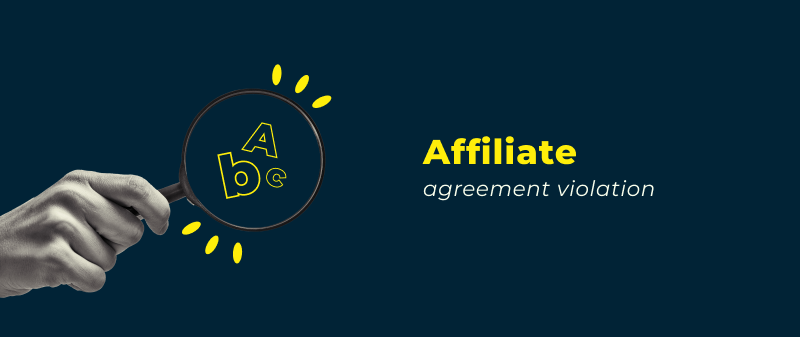DEFINITION
Affiliate disclosure is a statement or declaration commonly found on websites, blogs, or marketing content where an individual or company promotes products or services of other businesses as an affiliate partner.
Affiliate disclosure is a statement or declaration commonly found on websites, blogs, or marketing content where an individual or company promotes products or services of other businesses as an affiliate partner. This statement is crucial in the realm of affiliate marketing to ensure transparency and honesty with the audience and to comply with advertising regulations.
Table of contents
What are the requirements for affiliate disclosure?
According to the FTC’s guidelines, any financial relationship between the affiliate and the promoted entity must be clearly disclosed when a commission is earned for promoting an affiliate’s products or services. This disclosure should transparently describe the nature of the affiliate’s relationship with the partner or affiliate network, including the terms for commission allocation.
Different countries may have varying guidelines for affiliate disclosure. Therefore, it’s advisable to consult with a legal or marketing expert to ensure compliance within your specific jurisdiction. Moreover, individual affiliate programs might also have their distinct disclosure requirements.
Where should affiliate disclosure be placed?
The FTC stipulates that affiliate disclosures should be conspicuous. They should ideally be located close to affiliate links or any references to the promoted product or service, ensuring that website visitors can effortlessly access this information.
Affiliate disclosures must be present on every webpage featuring affiliate links or promotional content. It can be incorporated in various website sections, such as:
- The header;
- The footer;
- The sidebar;
- The privacy policy.
Examples of affiliate disclosure
Here are a few sample affiliate disclosures that can be adapted for your website, blog, or marketing content:
For a blog or website: “Note: Some links on this page are affiliate links, implying that if you proceed with a purchase after clicking one, I may earn a commission.”
In the footer of a site: “© [Your Company] 20XX. All rights reserved. This website might include affiliate links, meaning we could earn a commission from your clicks or purchases from certain links.”
In a product review or description: “This is a review of [product name]. If you decide to buy this product through our links, we might earn a commission. Thanks for supporting our site!”
How should an affiliate disclosure be crafted?
Drafting an affiliate disclosure isn’t complex, but it must clearly outline the nature of the relationship between the merchant and the affiliate. Primarily, it should detail any commissions the affiliate might receive for product promotions and the calculation method for such remuneration.
Why is affiliate disclosure pivotal?
Affiliate disclosures provide clarity for consumers, letting them know if content creators receive compensation from product owners. This aims to enhance the trustworthiness of promotional material and deter deceitful practices. The Federal Trade Commission (FTC) mandates the inclusion of such disclosures with all affiliate links in promotional content. While this is a US regulation, numerous affiliate programs extend this requirement to international platforms.



